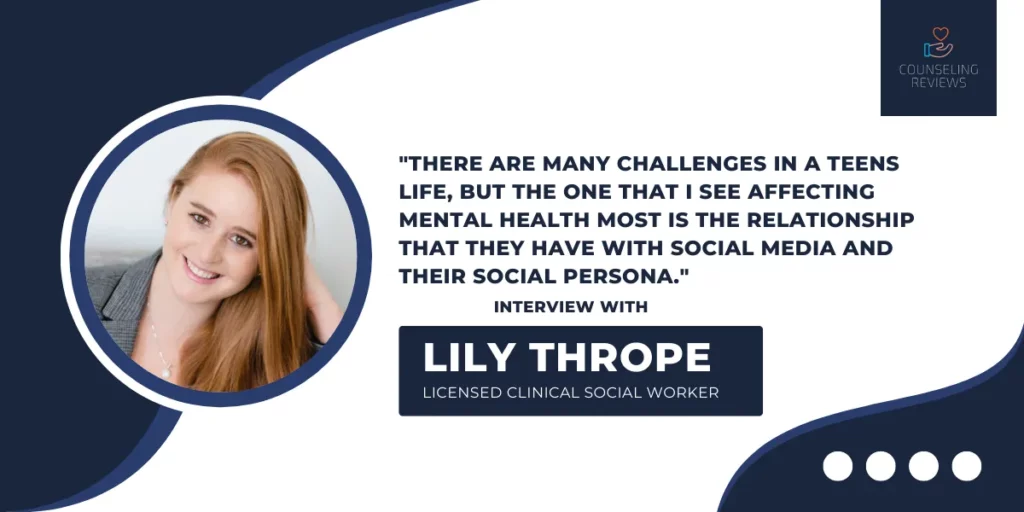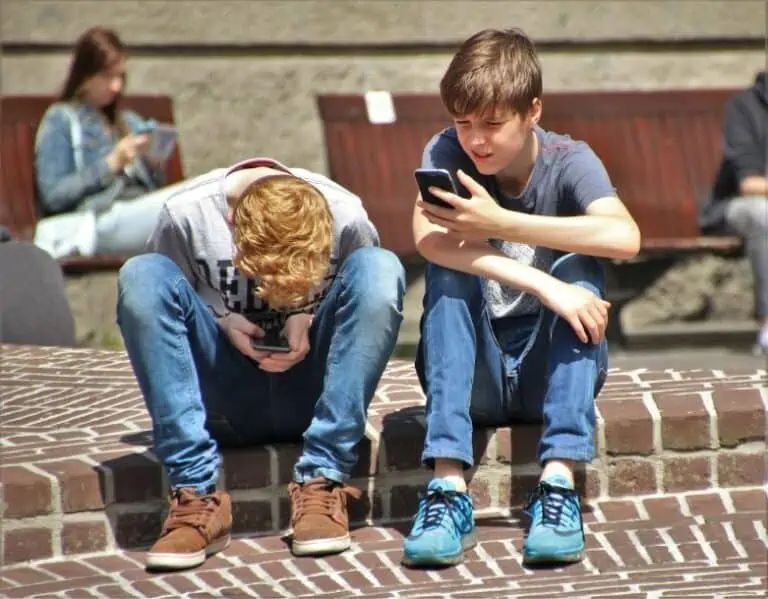
Social media has changed our lives, permeating every aspect of our day-to-day activities. Teenagers are not immune to the effects of excessive social media usage, which has given rise to many new problems.
For instance, Beyens et al. noted that the pervasiveness of social media leads to depressive symptoms among teenagers. Their literature review suggested that media-specific parenting may alleviate symptoms of depression and anxiety among teenagers.
Yet another study reveals that more than 90% of adolescents now use at least one social media account. Kucharczuk et al. focused on understanding how social media affects teenagers’ eating habits. The results were not encouraging.
They found that celebrities’ influence on adolescents and their tendency to recall unhealthy food-related advertisements were very high. As they are impressionable, it may put them at risk of eating disorders and body image issues.
To further understand how social media plays out in different clinical settings, we spoke to Lily Thrope. Lily Thrope is a Licensed Clinical Social Worker (LCSW), who founded Thrope Therapy LCSW PLLC, a private practice in NYC.
Thrope Therapy specializes in supporting individuals who experience eating disorders, disordered eating, low self-esteem, anxiety, depression, and LGBTQIA-related issues. Lily is also a Certified Intuitive Eating Counselor.
She has worked extensively with teens in her private practice. We spoke to Ms. Thrope to understand what challenges teenagers in her practice most commonly experience.

1. What problems/challenges do your teen clients face today?
Teens face many challenges today, with the most significant being navigating life with social media. Their relationship with social media and their social persona seem to impact their mental health significantly.
Other factors that can create challenges for teens are school-related issues, navigating puberty, friendships, bullying, and politics. Navigating these life components has become more challenging after the isolation resulting from the Covid-19 pandemic.
The most significant increase I have seen in mental health challenges is in Eating Disorders. During the Covid-19 pandemic, things felt really out of control for many teens, and the prevalence of Eating Disorders increased.
Post-pandemic, teenagers tend to rely on social media as the primary source of socialization. As a result, teens compare themselves with each other more harshly than before Covid.
Social Media also presents a lot of toxic information on dieting that increases the desire to control one’s body. Being constantly photographed as a teen and publicly viewed is challenging for vulnerable teenagers.
Another challenge that teens face is navigating feelings around their gender and sexual identity. This is one area where I feel social media is helping. There is a lot of support, access to resources, and increased visibility of LGBT people.
Social media can help connect teens through shared challenges which can be very healing.
2. In what areas are these challenges evident?
The challenges mostly pertain to growing up in a world that values “self-image” more than anything else.
Rather than promoting deep self-worth and value and teaching teens how to find this in themselves, there is a significant emphasis on creating a social media feed that looks perfect. Cultivating a more profound sense of self does not seem like a priority for teens.
3. Before the pandemic, what were the most common challenges you faced with teens?
Before the pandemic, there was less emphasis on social media. It was there, but the rates at which social media was consumed were minimal compared to now. During Covid-19, many teens attended school remotely and had way less in-person social interaction.
It caused social media to be relevant in a way that it had not been before. There were also fewer learning challenges before the pandemic. I have seen a sharp increase in ADHD, anxiety, and ASD diagnoses.
Teen consulting
4. What would you advise parents of teenagers with post-pandemic problems?
Parents can help teens find a balance in their relationship with social media by having open and candid conversations about social media use. Parents can also model this behavior with their social media use.
I think the biggest goal of parents during this time is to help their teens discover their inner value and power. It is essential to help teenagers nurture their individuality while reducing the focus on social media.
Parents curating their social media feed to reflect views that feel supportive to teens is helpful too. What we see and consume impacts how we think and feel.
5. What is the best therapy teens can get?
Teens often benefit from one-on-one therapy. It is a unique space where teens get to be the actual expert of their stories and work on skills that help them navigate difficult times in their lives.
Teens also find groups to be helpful. Knowing that you are not alone and that other teens are struggling can be powerful. This is particularly important for LGBT teenagers.
Social Media can be a Double-Edged Sword.
Social media hurts teenagers, and it is essential to encourage them to reduce their reliance on smartphones for stimulation. It is necessary to enable them to socialize in real-life, engage in physical activity such as exercise and sports, and spend more time with family and friends.
Covid-19 has worsened many of these pre-existing problems, and teenagers consume more social media now than ever. However, social media has proved essential for teenagers to receive support if they belong to the LGBT community.
Although there are several issues involved with increased social media usage, timely help and support can mitigate many of the associated risks. As Lily suggests, it is crucial to direct teenagers to help groups and receive individual therapy sessions.
This may help them wean off social media usage and avert psychosocial issues that may arise consequently. It is also important to note that some social media activity can help teens find other people suffering from similar problems, which can be helpful.



